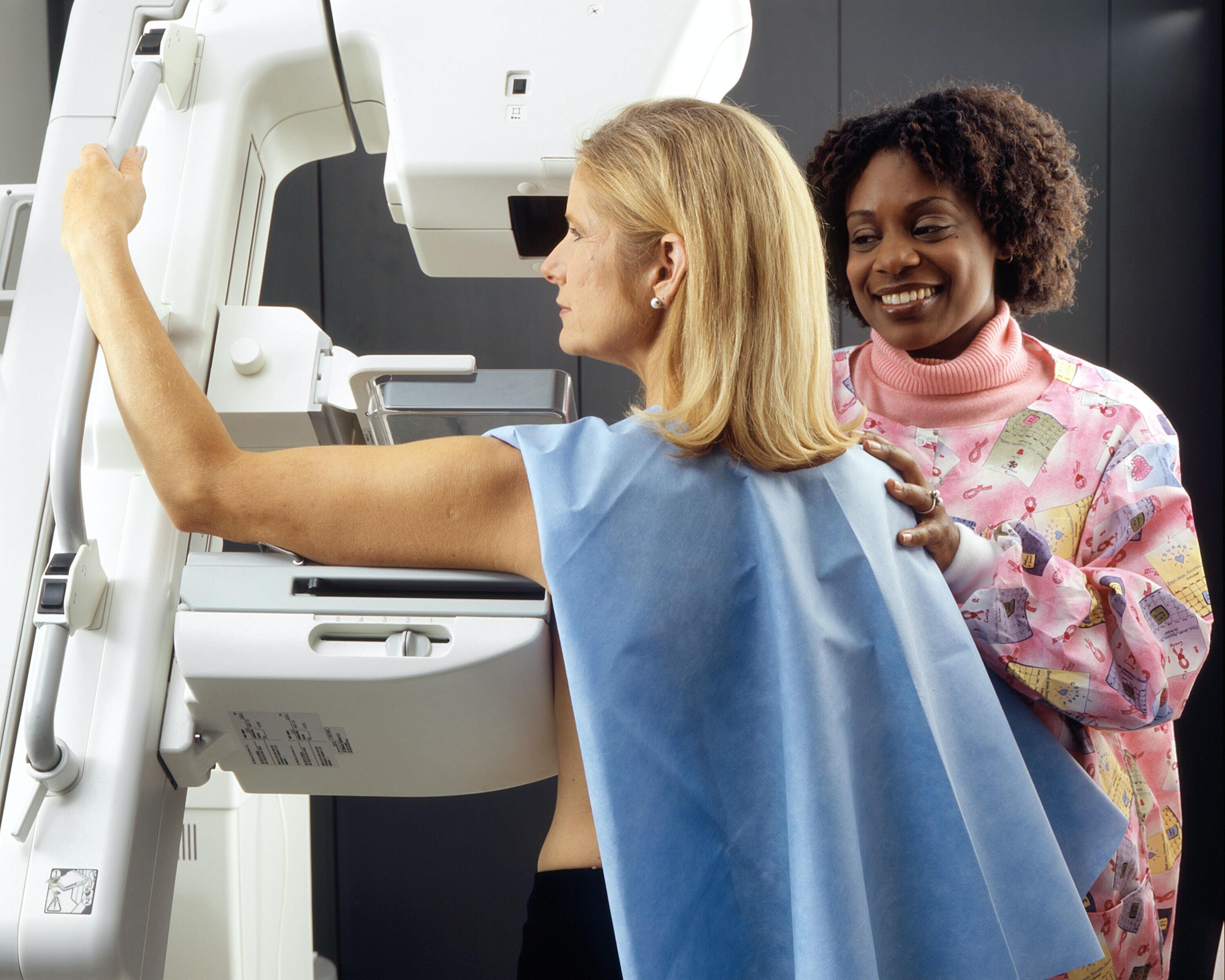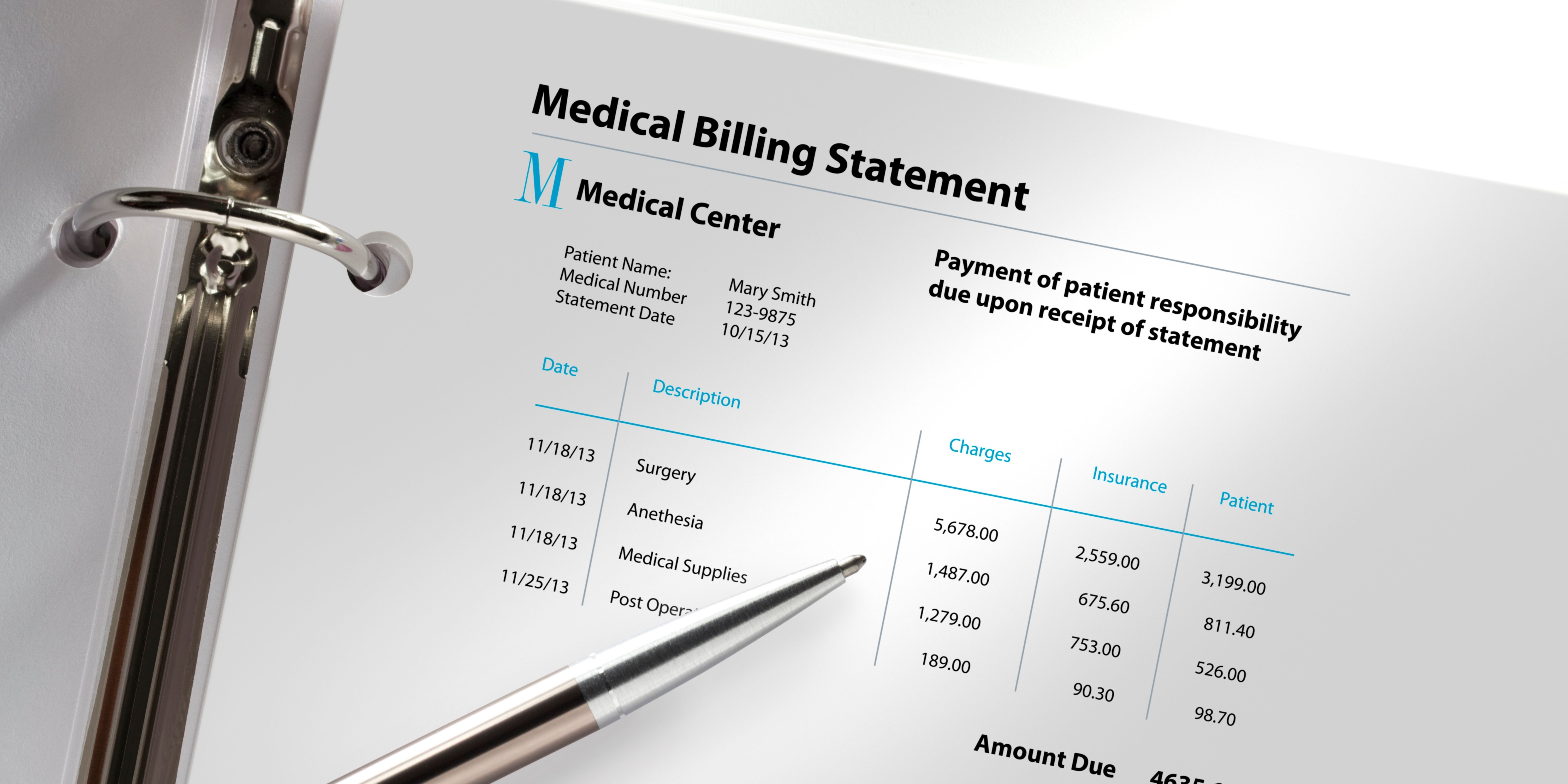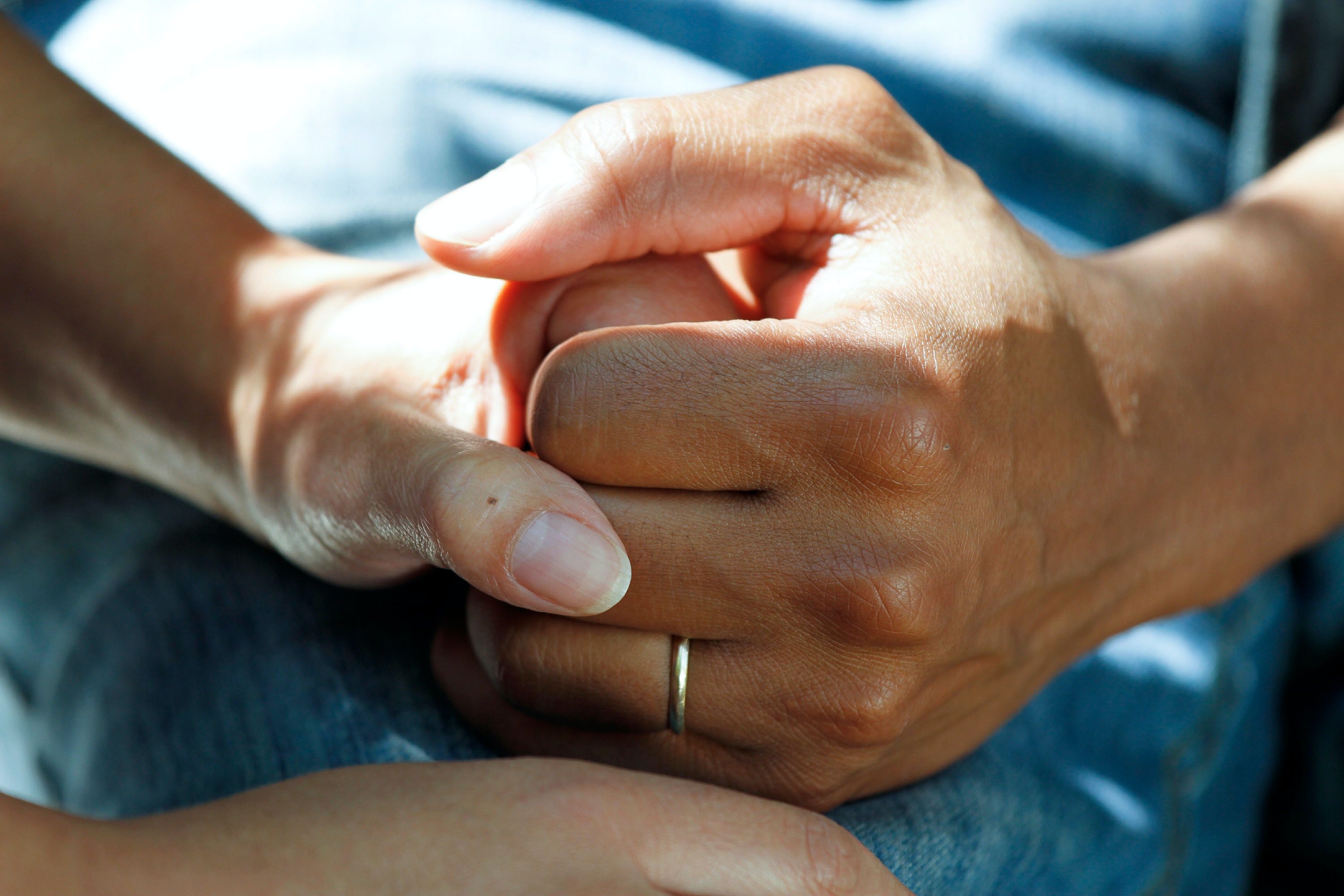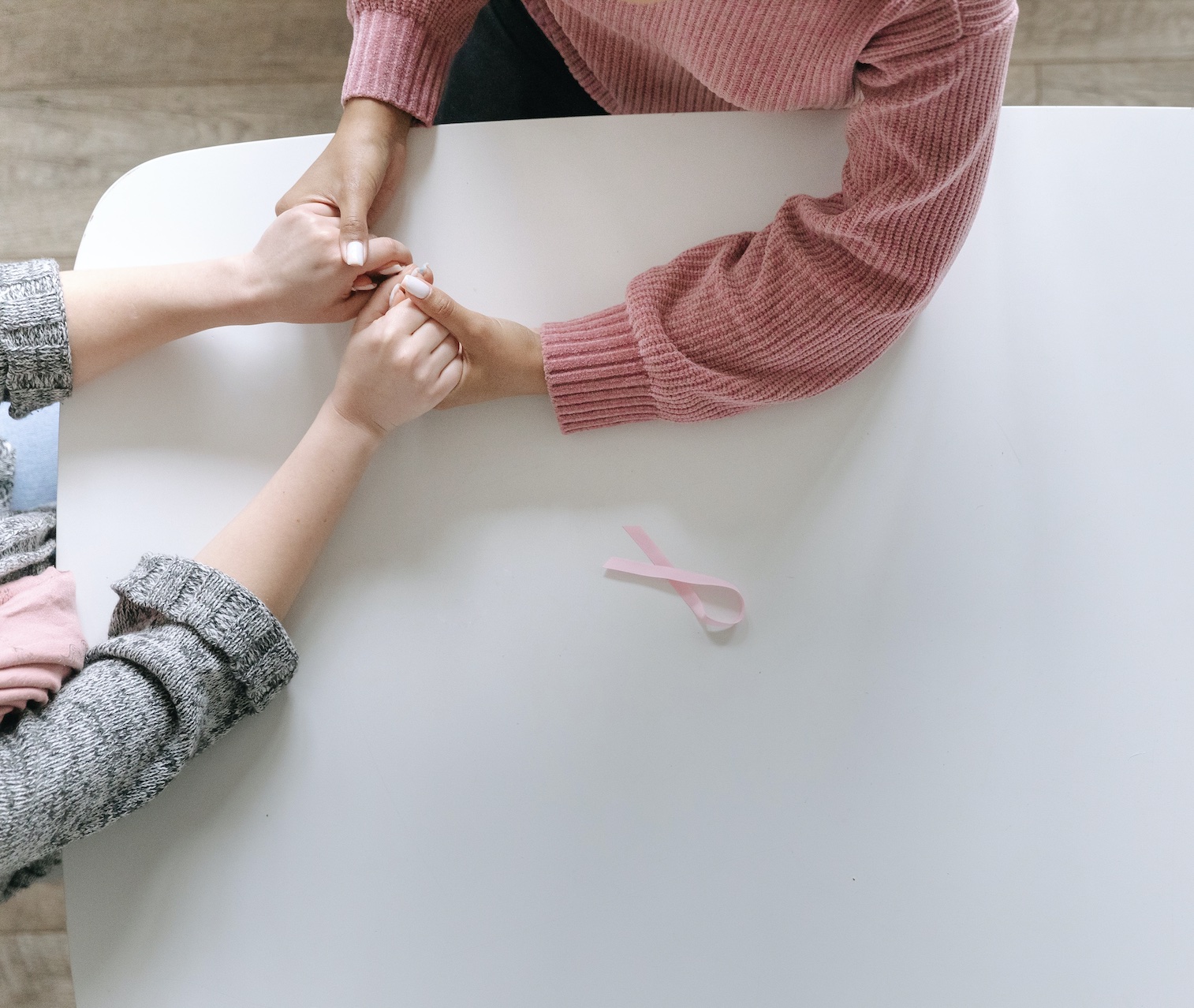Table of Contents.
Section 1: What Is Breast Cancer?
Section 2: Breast Cancer Statistics in the United States
Section 3: Causes of Breast Cancer & Risk Factors
Section 4: Breast Cancer Diagnosis, the Importance of Early Detection, and Treatment
Section 5: Hospice
Section 6: Financial Support & Resources for Breast Cancer
Section 7: Breast Cancer Support Groups (for patients, friends and family, and caregivers)
What Is Breast Cancer?
Breast cancer is a disease in which malignant (cancer) cells develop and grow in an abnormal, uncontrolled manner in the breast’s tissues.
- What Is Breast Cancer? (National Breast Cancer Foundation)
- Basic Information About Breast Cancer (Centers for Disease Control and Prevention (CDC))
- Learn About Breast Cancer (National Breast Cancer Foundation)
Breast Cancer Statistics in the United States
Breast cancer is the most common type of cancer in the United States. According to research cited by the National Cancer Institute, doctors are expecting a total of 290,560 breast cancer cases to be diagnosed in the U.S. by the end of 2022. According to the National Breast Cancer Foundation, 1 out of every 8 women in the United States will be diagnosed with breast cancer at some point in their lifetime.
Causes of Breast Cancer & Risk Factors
When an individual receives a breast cancer diagnosis, it is completely natural for them to wonder what caused them to develop breast cancer. There are so many questions… Why me? What’s going to happen to me? Will I be okay? All of these questions, and your feelings, are so valid.
Unfortunately, no one really knows exactly what causes breast cancer and why some women develop the disease while others do not. Nonetheless, we do know that breast cancer is brought about as a result of damage done to a cell’s DNA.
Additionally, ongoing breast cancer research has established certain risk factors that could increase a person’s likelihood of developing the disease if that risk factor(s) applies to them. Some of the most common genetic breast cancer risk factors include the following:
- Age
- Gender
- Race
- Obesity
- Dense Breast Tissue
- Genetic Factors and Family History
- Personal Health History
- Menstrual and Reproductive History
- Certain Genome Changes
It is critical to note that, if a woman has a risk factor, it does not automatically mean that a woman will develop breast cancer. There are many women who never get breast cancer despite the fact that they have risk factors for the disease.
More Information on Each Specific Breast Cancer Risk Factor:
- Causes of Breast Cancer (National Breast Cancer Foundation)
- General Information on the Different Breast Cancer Risk Factors (National Breast Cancer Foundation)
- Breast Cancer Risk Factors You Cannot Change (American Cancer Society)
- Male Breast Cancer (National Breast Cancer Foundation)
- Race/Ethnicity (BreastCancer.org)
- Being Overweight (BreastCancer.org)
- Dense Breast Tissue: what it means to have dense breasts (Mayo Clinic)
- Breast Cancer Genetics (National Breast Cancer Foundation)
- Reproductive History and Cancer Risk (National Cancer Institute)
Breast Cancer Diagnosis, the Importance of Early Detection, and Treatments
Breast Cancer Diagnosis & The Importance of Early Detection
Breast cancer is diagnosed through several tests that include a mammogram, ultrasound, magnetic resonance imaging (MRI), and a biopsy(s). To learn more about the various breast cancer screening tests and the importance of early detection, visit some of the links below.
- Breast Cancer Diagnosis (National Breast Cancer Foundation)
- Breast Cancer Screening (PDQ®)–Patient Version (National Cancer Institute)
- Screening & Early Detection (for Breast Cancer) (Susan G. Komen®)
- Breast Cancer: Screening (American Society of Clinical Oncology (ASCO))
More Information on the Importance of Early Detection for Breast Cancer:
- Early Detection is Important in Breast Cancer Care (Weill Cornell Medicine)
- Breast Self-Examination (Children’s Hospital of Philadelphia)
- Mammogram (National Breast Cancer Foundation)
- How to Schedule a Mammogram (National Breast Cancer Foundation)
- The informative, entirely free eBook “3 Steps to Early Detection” (National Breast Cancer Association)
Breast Cancer Treatment(s)
In general, when it comes to breast cancer treatment, there are five treatment options: surgery, chemotherapy, hormone therapy, targeted therapies, and radiation. Most breast cancer patients’ treatment plans involve some sort of personalized combination of these five treatment options. And, typically, when breast cancer is detected early, there is a higher likelihood that the cancer is at an earlier, less severe stage, which usually means that there are more treatment options available to people who’s breast cancer is caught early.
More Information About Breast Cancer Treatments Based on the Stage of the Cancer:
- Breast Cancer Treatment (National Breast Cancer Foundation)
- Treatments for Stage 0 Breast Cancer (American Cancer Society)
- Treatments for Stages I-III Breast Cancer (American Cancer Society)
- Treatments for Stage IV (Metastatic) Breast Cancer (American Cancer Society)
More Information on Financial Resources Available for Breast Cancer Screenings:
- Breast Cancer and Cervical Cancer Mortality Prevention Act of 1990
- National Breast and Cervical Cancer Early Detection Program (NBCCEDP) (Centers for Disease Control and Prevention)
- Family and Medical Leave Act (FMLA) by the U.S. Department of Labor
- The Pink Fund provides short-term financial assistance to help breast cancer patients who are undergoing treatment cover the costs of both medically- and non-medically-related expenses.
- Living Beyond Breast Cancer is an organization that provides financial grants for living expenses, support, and programs designed to assist people whose lives have been affected by breast cancer.
- The Road to Resource Program (For 3 Sisters) provides both emotional and financial support to women and men impacted by breast cancer.
- The National Financial Resource Directory is a search tool provided by the Patient Advocate Foundation to help people with breast cancer find financial assistance programs by state.
- Metastatic Breast Cancer Network (MBCN) is an independent, volunteer-based, national non-profit organization committed to providing support and helpful resources to women and men who are living with metastatic breast cancer.
- NeedyMeds is a national non-profit organization that provides both information on and resources to help breast cancer patients locate financial aid programs that can assist them in their ability to afford the expensive costs of healthcare, treatments, and medications.
- List of Breast Cancer of Financial Resources and Support on the Tutu Project’s website.
Hospice
Hospice care is for people who are reaching the end of their life. Hospice care is utilized when a terminal disease like cancer reaches the point at which treatment is no longer able to control its spread or cure it. When a doctor determines that the life expectancy of their terminally-ill patient is six months or less, patients have the decision to enter into hospice care. Below is a list of several helpful articles on hospice care from various cancer organizations:
More Information on: What is Hospice Care?
- What Is Hospice Care? (American Cancer Society)
- What Are Palliative Care and Hospice Care? (National Institute on Aging)
- What is Hospice? (Hospice Foundation of America)
- Hospice Care (Susan G. Komen®)
- Breast Cancer - Metastatic: Palliative Care (American Society of Clinical Oncology (ASCO))
- Advanced Cancer (American Society of Clinical Oncology (ASCO))
Support Groups for Hospice Care:
- How To Find A Support Group - Guide (American Association for Cancer Research®)
- The Benefits of Support Groups When You’re Facing Breast Cancer - Guide for Patients, Loved Ones, and Caregivers (Get Palliative Care)
Financial Support and Resources for Breast Cancer
 While improvements in both technology and modern medicine have provided us with better treatment options and success rates, the cancer treatment and recovery processes can be, and oftentimes are, extremely debilitating. As such, it is not uncommon that many people who are battling breast cancer find themselves in a position in which they are unable to maintain their normal day-to-day schedules and tasks (e.g., working) due to the demanding treatment schedules, doctors appointments, and recovery from the side effects of certain treatments. Nonetheless, patients still have to be able to pay for all of their expensive medical bills. If you, or someone you love, have been diagnosed with breast cancer, you should consider applying for Social Security disability benefits through the Social Security Administration (SSA).
While improvements in both technology and modern medicine have provided us with better treatment options and success rates, the cancer treatment and recovery processes can be, and oftentimes are, extremely debilitating. As such, it is not uncommon that many people who are battling breast cancer find themselves in a position in which they are unable to maintain their normal day-to-day schedules and tasks (e.g., working) due to the demanding treatment schedules, doctors appointments, and recovery from the side effects of certain treatments. Nonetheless, patients still have to be able to pay for all of their expensive medical bills. If you, or someone you love, have been diagnosed with breast cancer, you should consider applying for Social Security disability benefits through the Social Security Administration (SSA).
To help people cover the costs of living following a breast cancer diagnosis and not being able to work as a result, the SSA has several, well-established application-based programs that provide approved applicants with financial assistance via monthly paychecks.
Helpful Resources with More Information on How You Can Qualify for Social Security Disability Benefits with Breast Cancer
- How to Qualify for Disability with Breast Cancer in 2022 (Disability Benefits Help)
- Cancer and Social Security Disability Benefits (Disability Benefits Help)
- What Cancers Automatically Qualify for Disability Benefits? (Disability Benefits Help)
- Is Breast Cancer a Disability? (Disability Benefits Help)
- How Disabling is Breast Cancer? (Disability Benefits Help)
- Medical Criteria Needed To Qualify With Breast Cancer (Disability Benefits Help)
- Qualifying for SSD Benefits with Male Breast Cancer (Disability Benefits Help)
- Can I Continue Working With Breast Cancer? (Disability Benefits Help)
- Inflammatory Breast Cancer and Social Security Disability (Disability Benefits Help)
Helpful Resources with More Information on How To Apply for Social Security Disability Benefits with Breast Cancer
- How Can An Attorney Help Your Breast Cancer Claim? (Disability Benefits Help)
- What Is Included In My Disability Application With Breast Cancer (Disability Benefits Help)
- What Documents Do I Need To Apply For SSD With Breast Cancer? (Disability Benefits Help)
- 5 Signs Your Disability Claim May Be Approved With Breast Cancer (Disability Benefits Help)
- What Are the Benefits Of Applying For SSDI With Breast Cancer? (Disability Benefits Help)
Something to Keep In Mind:
The Social Security disability benefits application process can take a long time, and might not always be easy. This is why it can be very beneficial to consider consulting and also working with a Social Security disability attorney who could help you by staying on top of your application as well as advocating for your needs while you focus on your breast cancer treatments and recovery.
Additional, Helpful Information on Region-, State-, and City-Specific Help:
- Social Security Attorneys by State (Disability Benefits Help)
- Social Security Disability Benefits Information and Application Help by Region (Disability Benefits Help)
- Social Security Disability Medical Resources by State (and City) (Disability Benefits Help)
- Condition Resources (Including Cancer-Specific Resources) by State (Disability Benefits Help)
Support Groups for Breast Cancer
 Social support (via support groups) has been found to have many benefits for breast cancer patients. Specifically, research cited by Susan G. Komen® suggests a potential link between support groups and increased survival rates for breast cancer patients. Below are lists of support groups for breast cancer patients, their loved ones, and their caregivers.
Social support (via support groups) has been found to have many benefits for breast cancer patients. Specifically, research cited by Susan G. Komen® suggests a potential link between support groups and increased survival rates for breast cancer patients. Below are lists of support groups for breast cancer patients, their loved ones, and their caregivers.
Support Groups for Breast Cancer Patients
- What are Support Groups? (Susan G. Komen®)
- What is Social Support & Why is it Important for Breast Cancer Patients? (Susan G. Komen®)
- Support for People with Metastatic Breast Cancer (Susan G. Komen®)
- Male Breast Cancer Patient Support Groups (Susan G. Komen®)
- Finding Telephone and Online Sources of Support (Susan G. Komen®)
- Breast Cancer Resources & Support (Living Beyond Breast Cancer)
- Support Options Following a Breast Cancer Diagnosis (CancerCare)
- Online Support Groups (CancerCare)
- Live Support Groups (CancerCare)
- Coping With Cancer (as a patient and survivor) (Cancer Support Community)
- Community Support for Breast Cancer Patients and Personalized Information Regarding Their Individual Diagnosis (BreastCancer.org)
Support Groups for Breast Cancer Patients’ Friends & Family
- Support Groups for Patients’ Family and Loved Ones (Susan G. Komen®)
- Support Groups for Co-Survivors (Susan G. Komen®). Co-survivors is a term used to refer to partners or spouses, family members, colleagues, friends, or health care providers who were there throughout the breast cancer survivor’s diagnosis and treatment.
- What Should I Say? How Can I Help my Loved One with Breast Cancer? (Susan G. Komen®)
- How to Cope With Grief and Loss - An Informative Guide (American Society of Clinical Oncology (ASCO))
Support Groups for Breast Cancer Caregivers
- Support Groups for Co-Survivors (Susan G. Komen®)
- Navigating Cancer as a Caregiver (CancerCare)
- Remembering Your Needs as a Breast Cancer Caregiver (CancerCare)
Additional Helpful Articles & Resources
Below are some of our other helpful articles discussing other important aspects of the Social Security disability benefits process as it applies to breast cancer.
- Compassionate Allowances (Disability Benefits Help)
- Stage III Breast Cancer (Disability Benefits Help)
- Stage IV breast cancer. Got disability. Not enough to live on (Disability Benefits Help)
- Using an RFC When Applying For Disability Benefits With Breast Cancer (Disability Benefits Help)
- What Malignant Neoplastic Diseases Qualify For Social Security Disability? (Disability Benefits Help)
